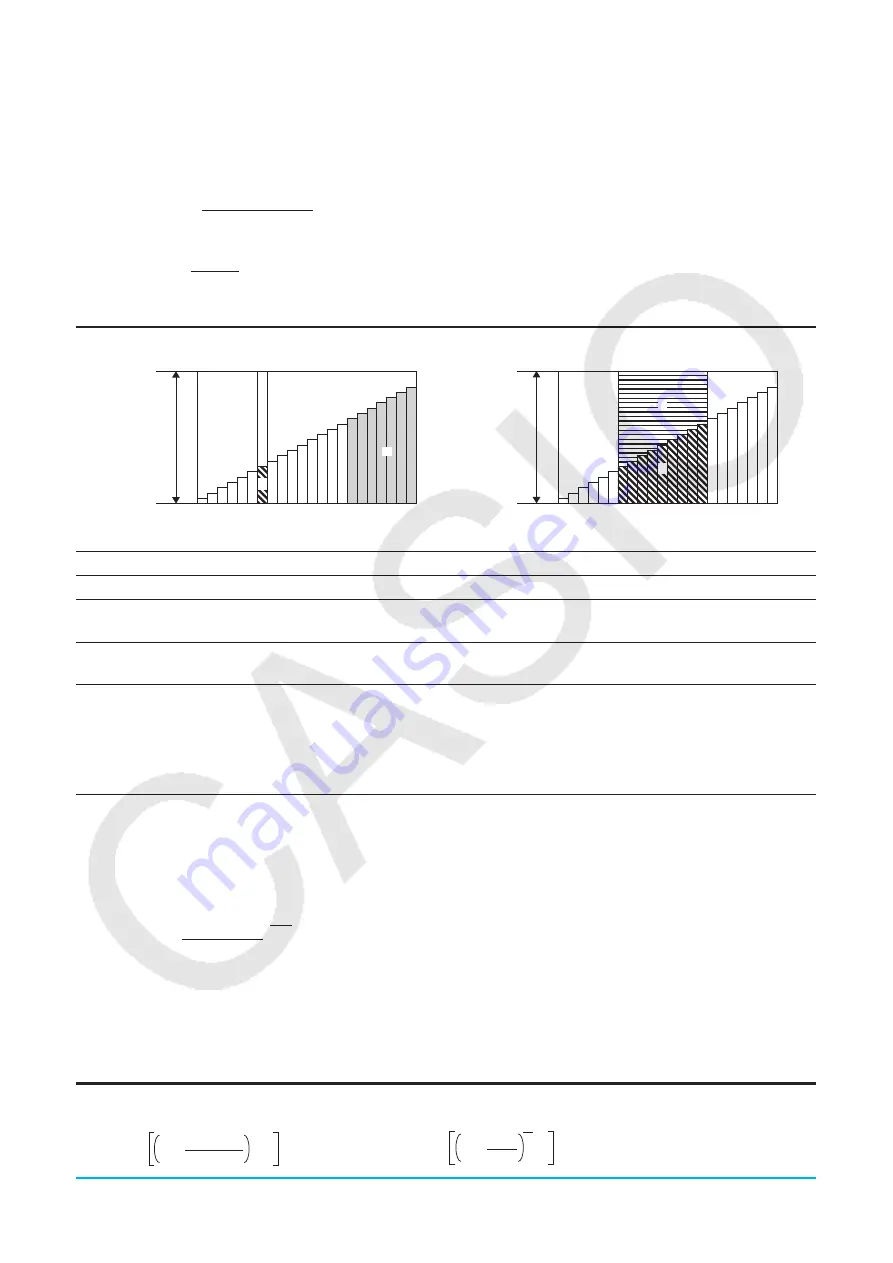
Chapter 11
:
Financial Application
184
In this formula,
NPV
= 0, and the value of
IRR
is equivalent to
i
× 100. It should be noted, however, that
minute fractional values tend to accumulate during the subsequent calculations performed automatically by
the ClassPad, so
NPV
never actually reaches exactly zero.
IRR
becomes more accurate the closer that
NPV
approaches to zero.
PBP
=
{
0 .................................. (
CF
0
t
0)
n
–
NPV
n
NPV
n
+1
–
NPV
n
(Other than those above)
...
NPV
n
=
Σ
n
k
= 0
CF
k
(1
+
i
)
k
n
: smallest positive integer that satisfies the conditions
NPV
n
s
0, 0
s
NPV
n
+1
, or 0
Amortization
c
a
1 payment
Number of payments
1
PM1
PM2
Last
............
...................
..........
b
1 payment
Number of payments
1
PM1
PM2
Last
.............
................
.............
e
d
a
: interest portion of payment PM1 (INT)
b
: principal portion of payment PM1 (PRN)
c
: principal balance upon completion of
payment PM2 (BAL)
d
: total principal paid from payment PM1 to
payment PM2 (
Σ
PRN)
e
: total interest paid from payment PM1 to
payment PM2 (
Σ
INT)
a
+
b
= one repayment (PMT)
BAL
0
= PV
(when “Payment Date” is “End”)
INT
1
=
0
,
PRN
1
= PMT
(when “Payment Date” is “Begin”)
Converting between the Nominal Interest Rate and Effective Interest Rate
The nominal interest rate (
I
% value input by user) is converted to an effective interest rate (
I
%
'
) for installment
loans where the number of annual payments is different from the number of annual compound calculation
periods.
I%
'
=
I%
(1 +
)
– 1
[
C
/
Y
]
[
P
/
Y
]
{ }
×
100
100
× [
C
/
Y
]
The following calculation is performed after conversion from the nominal interest rate to the effective interest
rate, and the result is used for all subsequent calculations.
i
=
I%
'
÷
100
Interest Conversion
EFF
=
n
APR/
100
1 +
– 1
×
100
n
APR
=
100
EFF
1 +
– 1
×
n
×
100
1
n
=1@
PM1
=
I
DG5
PM1–1
×
I
×
(
H2@
)
HJ1
PM1
=
H2@
+
DG5
PM1–1
×
DG5
PM2
=
DG5
PM2–1
+
HJ1
PM2
Σ
HJ1
=
HJ1
PM1
+
HJ1
PM1+1
+ … +
HJ1
PM2
PM2
PM1
Σ
=1@
=
=1@
PM1
+
=1@
PM1+1
+ … +
=1@
PM2
PM2
PM1






























